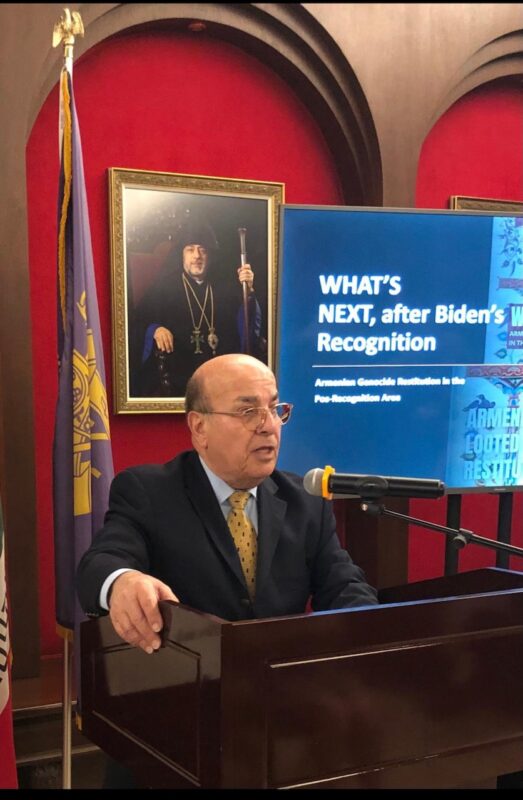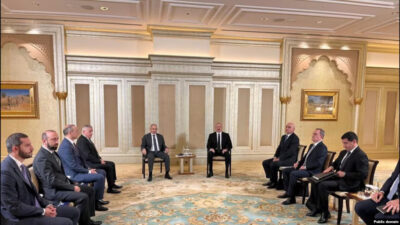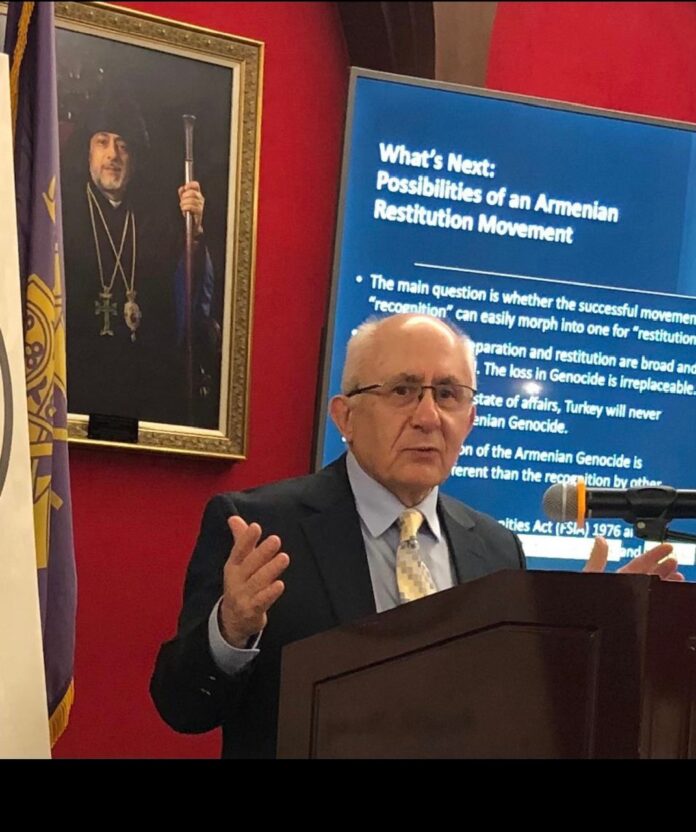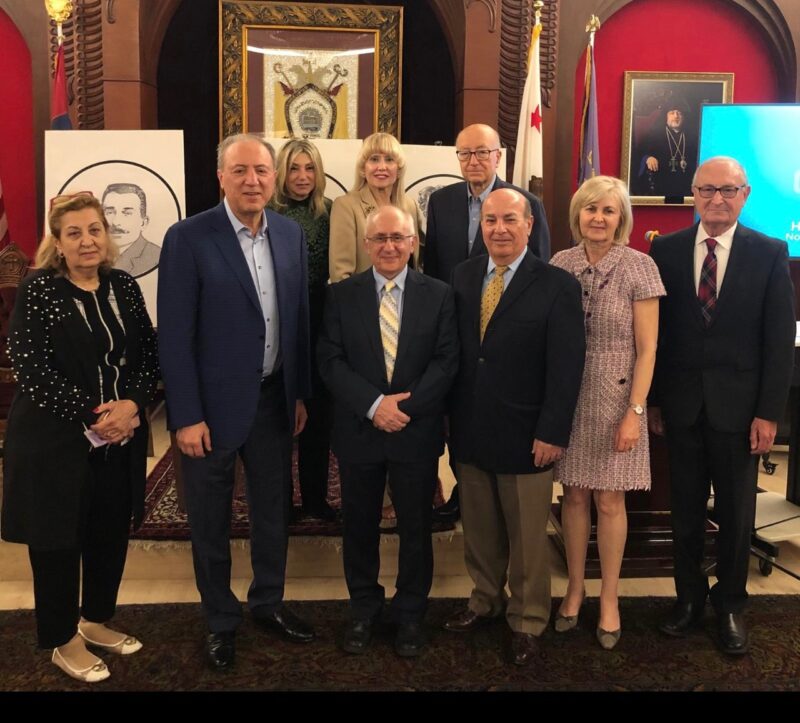BURBANK, Calif. — Under the auspices of Archbishop Hovnan Derderian, Primate of the Western Diocese of the Armenian Church of North America, the Diocesan Zvartnots Cultural Committee invited historian Dr. Taner Akçam to deliver a lecture entitled “What Follows Recognition? Possibilities of an Armenian Restitution Movement” on Wednesday, April 10 in the Armen Hampar reception hall of the Diocesan headquarters in Burbank.
The reception room was appropriately decorated with the pictures of some of the literary giants of the time, who fell victim to the Armenian Genocide, perpetrated by the Young Turks. They included Siamanto, Taniel Varoujan, Roupen Sevag, Yeroukhan, Krikor Zohrab, Roupen Zartarian and Tlgadintsi.
Welcoming remarks were made by Zvartnots Committee Chair Dr. Simon Simonian, who asked the audience for a moment of silence in honor of the victims of the Armenian Genocide. Today, he said, 32 countries around the world recognize the Armenian Genocide. He then invited artist Roupen Haroutunian for a musical interlude. Roupen performed four solemn selections on the duduk.

Dr. Simonian introduced Dr. Taner Akçam, who Simonian said has dug up every stone to uncover the truth about the Armenian Genocide and has been called the Sherlock Holmes of the Armenian Genocide by the New York Times. During the 1990s, Akçam was the first Turkish scholar to acknowledge the Armenian Genocide.
Akçam was born in the province of Ardahan, Turkey, in 1953. He received his doctorate in 1995 from the University of Hanover, Indiana, with a dissertation on “The Turkish National Movement and the Armenian Genocide Against the Background of the Military Tribunals in Istanbul between 1919 and 1922.”
A socialist, Akçam was arrested in 1976 and sentenced to 10 years imprisonment. Amnesty International adopted him as a prisoner of conscience. A year later, he escaped to Germany, where he received political asylum. He has been a member of the history department at Clark University in Worcester, Massachusetts, from 200 until he came to the University of California, Los Angeles in 2022 as the inaugural director of the Armenian Genocide Research Program of the Promise Armenian Institute. Akçam has authored many books on the Armenian Genocide.









